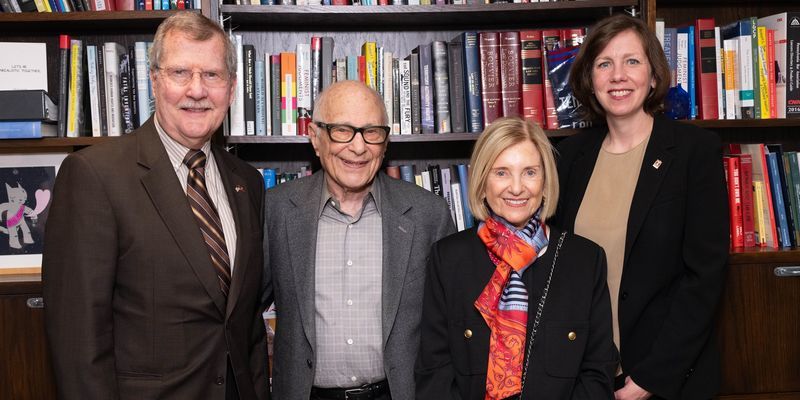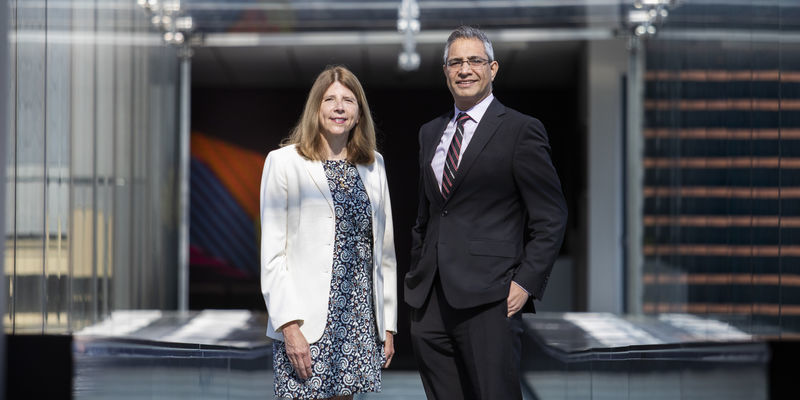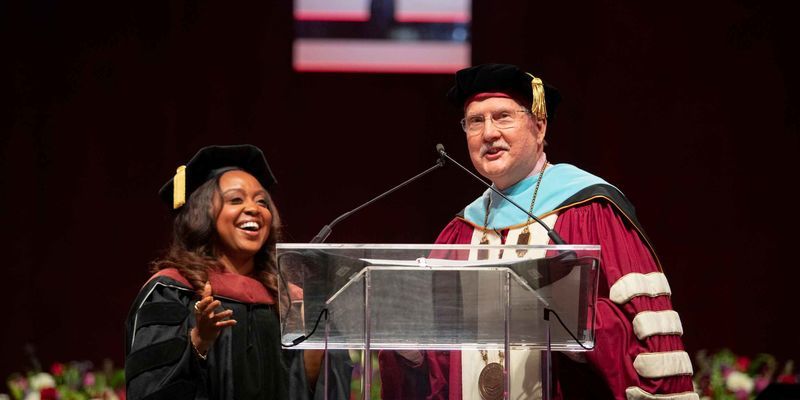Temple Law graduates are landing good jobs at record rates
Over 95% of Beasley’s Class of 2023 has found employment in a variety of legal sectors.

Temple University’s Beasley School of Law has a rich history of preparing its students for careers as lawyers, clerks and advocates. This continues to be true today, as the most recent graduate data submitted to the American Bar Association (ABA) reported 95.2% of the Class of 2023 was employed as of March 2024.
Of those graduates, 93.3% were employed in full-time, long-term positions that either require bar passage or consider having a juris doctor (JD) degree an advantage in obtaining and performing the job.
The Class of 2023’s 93.3% is the highest bar/JD advantage employment rate ever achieved by a Beasley graduating class, surpassing the Class of 2019’s 90.74% rate. It is also tied for the second highest rate in Pennsylvania, right behind the University of Pennsylvania Carey Law School’s rate of 93.9%.
“Training great attorneys who will make positive impacts in the community is at the core of Temple Law’s mission. While the first job out of law school won’t define a legal career, it is often the most difficult job for an attorney to obtain,” said Jim Walsh, Beasley’s assistant dean of career services. “That such a large portion of the Class of 2023 have already cleared this important hurdle is an indication of major accomplishments to come.”
Beasley has long had a reputation for producing graduates who work in the public interest or government sectors, and that trend has continued in the Class of 2023 data. According to the ABA, the national average placement rate in public interest and government positions was 20% for the Class of 2023. Beasley’s average was 24.8%.
Public service and government positions are often with civil legal services or other organizations that assist low-income clients. These positions also include public defenders, and positions with labor unions, federal agencies or city law departments.
Beasley’s excellent placement rate in these sectors aligns with Temple’s mission and history.
“We’re a university that’s always been built around access to education, and I think there’s this overall mission that drives a sense of public interest and wanting to work toward the public good,” Walsh said. “We’re also a school that trains advocates, and this speaks to the strength of our trial advocacy program, ranked first in the country by U.S. News. If your goal is to go out there and advocate for people, then Temple Law is a great place to learn how to do that.”
Beasley also boasts a strong roster of business law and tax law faculty, and Walsh says many of the graduates who end up in the business and industry sector take jobs with accounting firms such as Deloitte or KPMG.
The largest portion of Beasley graduates, 102 from the Class of 2023, go on to work at law firms. A 2024 report from law.com found that Beasley ranked 36th nationally in producing graduates who work at the 100 largest legal firms in the country. Walsh says this speaks to Beasley’s ability to prepare students for careers across the legal sector.
Beasley’s Office of Career Services plays an important role in gathering graduate data and supporting students as they begin their law careers. The office recently launched a professional development program, which is part of the law school’s new comprehensive student success program. This student success program is an effort to regularly connect with all students and offer support in the areas of professional development, wellness, academic success and DEI.
“Our career services office is a crucial piece in the larger picture of student success,” said Temple Law School Dean Rachel Rebouché. “We have rolled out a comprehensive program that guides students from their first day of Orientation in their first year through entering the legal profession after the bar exam.”
Part of the program includes mandatory exit interviews with graduating students, which Walsh says not only helps his office gather employment data, but also helps his staff better support students in their job search.
“The best tool we have at our disposal is one-on-one advising, because it gets us to a place where we know the student, we know what their goals are and we learn how we can best help them—where their needs are, where their strengths are and where their weaknesses are,” Walsh said, adding that the exit interviews have also helped his office establish trust with students.
For students who are approaching graduation and are still searching for a job, the exit interviews are where Office of Career Services staff assist with making sure student resumes and applications are refined, ensuring that students are looking in the right places for job opportunities, and connecting them with alumni who can be resources.
After a student applies for a job, the office helps them go over frequently asked interview questions and conducts mock interviews. Even after a student receives an offer, the office assists with the decision-making process, gives insight into whether the opportunity is a good fit and can help a student with negotiations.
The support continues after a graduate lands their first job, as Office of Career Services resources are available to students and alumni throughout their careers.
“We’re really with them every step of the way,” Walsh said.
Walsh and his staff believe the exit interviews and the larger comprehensive program will help Beasley continue to excel at producing practice-ready lawyers who land jobs in their desired sector.
“Our hope is that this type of attention to resources and focus on student success will allow us to continue having these great outcomes in the future,” he said.


